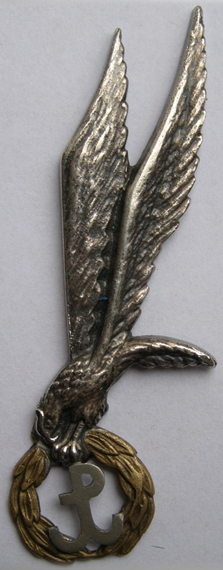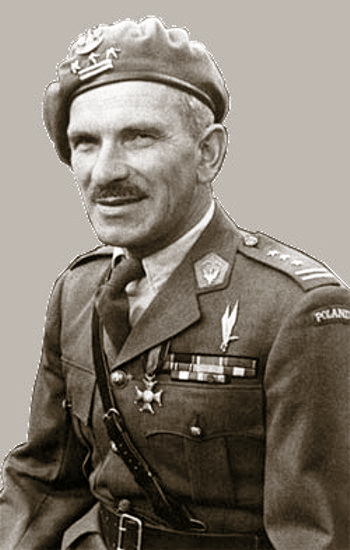|
Ponury
Jan Piwnik (31 August 1912 – 16 June 1944) was a Polish World War II soldier, a '' cichociemny'' and a notable leader of the Home Army in the Świętokrzyskie Mountains. He used the nickname ''Ponury'' ("Gloomy" or "Grim") and ''Donat''. Biography Jan Piwnik was born on 31 August 1912 in the village of Janowice, Kielce Voivodeship (1919–39), Second Polish Republic, to Jan, a farmer, and Zofia (Kłonica) Piwnik. In 1933, he graduated from a reserve NCO artillery school in Włodzimierz Wołyński. In 1935, he joined the Polish police, where he served as an officer. Mobilized in 1939, during the invasion of Poland by Germany, he commanded a motorized unit of the police. When the Soviets also attacked, on 23 September he and his unit crossed the Hungarian border and were interned. Piwnik managed to escape from the internment camp. In November 1939, he reported to the Polish Government in Exile in Paris. He joined the Polish Army, reconstituted in France at that time and w ... [...More Info...] [...Related Items...] OR: [Wikipedia] [Google] [Baidu] |
Cichociemny
The Silent Unseen ( Polish: ''Cichociemni'', ) were elite special-operations paratroopers of the Polish Army in exile, created in Great Britain during World War II to operate in occupied Poland (''Cichociemni Spadochroniarze Armii Krajowej''). Kazimierz Iranek-Osmecki, ''The Unseen and Silent: Adventures from the Underground Movement, Narrated by Paratroops of the Polish Home Army'', Sheed and Ward, 1954, p. 350. A total of 2,613 Polish Army soldiers volunteered for training by Polish and British SOE operatives. Only 606 people completed the training, and eventually 316 of them were secretly parachuted into occupied Poland. The first operation ("air bridge", as it was called) took place on 15 February 1941. This operation was conducted by Captain Józef Zabielski, Major Stanisław Krzymowski and political courier Czesław Raczkowski. After 27 December 1944 further operations were discontinued, as by then most of Poland had been occupied by the Red Army. Of 316 Cichociemni, 10 ... [...More Info...] [...Related Items...] OR: [Wikipedia] [Google] [Baidu] |
Yewlashy
Yewlashy (; ; ) is a village in Shchuchyn District, Grodno Region, Belarus. History In the interwar period, the village was situated in Poland, in the Nowogródek Voivodeship, in Lida County, in Dziembrów Commune. According to the 1921 census, the population was 98.8% Polish and 1.2% Belarusian. After the Soviet invasion of Poland in 1939, the village became part of the BSSR. From 1941-1944 it was under German occupation. Then the village was again in the BSSR. From 1991 it was part of the Republic of Belarus. On June 16, 1944, Jan Piwnik "Ponury" died in the fight against the Germans near Yewlashy. His body was buried on June 18 at the cemetery in Wawiorka and only in 1988 brought to Poland. A monument was erected next to the forest in Yewlashy. It has an inscription "To Polish soldiers and officers who died in the fight against German-fascist invaders during World War II World War II or the Second World War (1 September 1939 – 2 September 1945) was a W ... [...More Info...] [...Related Items...] OR: [Wikipedia] [Google] [Baidu] |
Wachlarz
Wachlarz (, '' folding fan'') was a Polish World War II resistance organization formed by the Armia Krajowa for sabotage duties behind the German Eastern Front, outside of the Polish borders. Its commanders were Lieutenant Colonel Jan Włodarkiewicz (until 1942) and Lieutenant Colonel Adam Remigiusz Grocholski. Originally formed in 1941, shortly after the outbreak (22 June 1941) of the German-Soviet War, the organisation was subordinate to Związek Walki Zbrojnej and bore the cryptonym ''18'', later changed to ''27''. The final name, ''Wachlarz'', resulted from the subdivision of the organisation into several branches, each trying to spread its influence from certain portions of the Polish border deep into Soviet territory. Wachlarz had five different sectors, each acting independently and forming along several main supply-lines of the German war machine: # Lwów-Tarnopol- Zhmerynka-Dnipropetrovsk # Równe-Zhytomir-Kiev # Brześć nad Bugiem- Pińsk- Homel # Lida-Minsk- Bori ... [...More Info...] [...Related Items...] OR: [Wikipedia] [Google] [Baidu] |
Janowice, Ostrowiec County
Janowice is a village in the administrative district of Gmina Waśniów, within Ostrowiec County, Świętokrzyskie Voivodeship, in south-central Poland. It lies approximately south of Waśniów, south-west of Ostrowiec Świętokrzyski, and east of the regional capital Kielce Kielce (; ) is a city in south-central Poland and the capital of the Świętokrzyskie Voivodeship. In 2021, it had 192,468 inhabitants. The city is in the middle of the Świętokrzyskie Mountains (Holy Cross Mountains), on the banks of the Silnic .... References Villages in Ostrowiec County {{Ostrowiec-geo-stub ... [...More Info...] [...Related Items...] OR: [Wikipedia] [Google] [Baidu] |
Internment
Internment is the imprisonment of people, commonly in large groups, without Criminal charge, charges or Indictment, intent to file charges. The term is especially used for the confinement "of enemy citizens in wartime or of terrorism suspects". Thus, while it can simply mean imprisonment, it tends to refer to preventive confinement rather than confinement ''after'' having been convicted of some crime. Use of these terms is subject to debate and political sensitivities. The word ''internment'' is also occasionally used to describe a neutral country's practice of detaining belligerent Military, armed forces and equipment on its territory during times of war, under the Hague Conventions of 1899 and 1907#Hague Convention of 1907, Hague Convention of 1907. Interned persons may be held in prisons or in facilities known as internment camps or Concentration camp, concentration camps. The term ''concentration camp'' originates from the Spanish–Cuban Ten Years' War when Spanish forces ... [...More Info...] [...Related Items...] OR: [Wikipedia] [Google] [Baidu] |
Gestapo
The (, ), Syllabic abbreviation, abbreviated Gestapo (), was the official secret police of Nazi Germany and in German-occupied Europe. The force was created by Hermann Göring in 1933 by combining the various political police agencies of Free State of Prussia, Prussia into one organisation. On 20 April 1934, oversight of the Gestapo passed to the head of the ''Schutzstaffel'' (SS), Heinrich Himmler, who was also appointed Chief of German Police by Hitler in 1936. Instead of being exclusively a Prussian state agency, the Gestapo became a national one as a sub-office of the (SiPo; Security Police). From 27 September 1939, it was administered by the Reich Security Main Office (RSHA). It became known as (Dept) 4 of the RSHA and was considered a sister organisation to the (SD; Security Service). The Gestapo committed widespread atrocities during its existence. The power of the Gestapo was used to focus upon political opponents, ideological dissenters (clergy and religious org ... [...More Info...] [...Related Items...] OR: [Wikipedia] [Google] [Baidu] |
Rivne
Rivne ( ; , ) is a city in western Ukraine. The city is the administrative center of Rivne Oblast (province), as well as the Rivne Raion (district) within the oblast.On bringing the name of Rovno city and Rovno Oblast in accordance to rules of Ukrainian spelling . . 11 June 1991 It has a population of In the spring of 1919, it also served as a provisional seat of the Ukrainian government throughout the ongoing war with Soviet Russia. Between |
Stanisław Sosabowski
Stanisław Franciszek Sosabowski (; 8 May 1892 – 25 September 1967) was a Polish general in World War II. He fought in the Polish Campaign of 1939 and at the Battle of Arnhem (Netherlands), as a part of Operation Market Garden, in 1944 as commander of the Polish 1st Independent Parachute Brigade. Early military career Early years and studies Stanisław Sosabowski was born on 8 May 1892 in Ivano-Frankivsk, Stanislau (), in what was then Austria-Hungary and is now Ivano-Frankivsk in western Ukraine. His father was a railway worker. Sosabowski graduated from a local gymnasium (school), gymnasium and in 1910 he was accepted as a student of the faculty of economy of the Jagiellonian University in Kraków. However, the death of his father and the poor financial situation of his family forced him to abandon his studies and return to Stanislau. There he became a member of Drużyny Strzeleckie, a semi-clandestine Polish national paramilitary organisation. He was soon promoted ... [...More Info...] [...Related Items...] OR: [Wikipedia] [Google] [Baidu] |
Polish 1st Independent Parachute Brigade
The 1st (Polish) Independent Parachute Brigade was a parachute infantry brigade of the Polish Armed Forces in the West under the command of Major General Stanisław Sosabowski, created in September 1941 during the Second World War and based in Scotland. Originally, the brigade's exclusive mission was to drop into occupied Poland in order to help liberate the country. The British government, however, pressured the Poles into allowing the unit to be used in the Western theatre of war. Operation Market Garden eventually saw the unit sent into action in support of the British 1st Airborne Division at the Battle of Arnhem in September 1944. The first Poles were landed by glider from 18 September. Bad weather over England delayed the parachute section of the Brigade until 21 September, when it parachuted into Driel on the South bank of the Rhine. The Poles suffered significant casualties during the next few days of fighting, but still were able, by their presence, to cause about ... [...More Info...] [...Related Items...] OR: [Wikipedia] [Google] [Baidu] |
Battle Of France
The Battle of France (; 10 May – 25 June 1940), also known as the Western Campaign (), the French Campaign (, ) and the Fall of France, during the Second World War was the Nazi Germany, German invasion of the Low Countries (Belgium, Luxembourg and the Netherlands) and French Third Republic, France. The plan for the invasion of the Low Countries and France was called (Case Yellow or the Manstein plan). (Case Red) was planned to finish off the French and British after the Dunkirk evacuation, evacuation at Dunkirk. The Low Countries and France were defeated and occupied by Axis troops down to the Demarcation line (France), Demarcation line. On 3 September 1939, French declaration of war on Germany (1939), France and United Kingdom declaration of war on Germany (1939), Britain declared war on Nazi Germany, over the German invasion of Poland on 1 September. In early September 1939, the French army began the limited Saar Offensive but by mid-October had withdrawn to the start line ... [...More Info...] [...Related Items...] OR: [Wikipedia] [Google] [Baidu] |
Great Britain
Great Britain is an island in the North Atlantic Ocean off the north-west coast of continental Europe, consisting of the countries England, Scotland, and Wales. With an area of , it is the largest of the British Isles, the List of European islands by area, largest European island, and the List of islands by area, ninth-largest island in the world. It is dominated by a maritime climate with narrow temperature differences between seasons. The island of Ireland, with an area 40 per cent that of Great Britain, is to the west – these islands, along with over List of islands of the British Isles, 1,000 smaller surrounding islands and named substantial rocks, comprise the British Isles archipelago. Connected to mainland Europe until 9,000 years ago by a land bridge now known as Doggerland, Great Britain has been inhabited by modern humans for around 30,000 years. In 2011, it had a population of about , making it the world's List of islands by population, third-most-populous islan ... [...More Info...] [...Related Items...] OR: [Wikipedia] [Google] [Baidu] |






